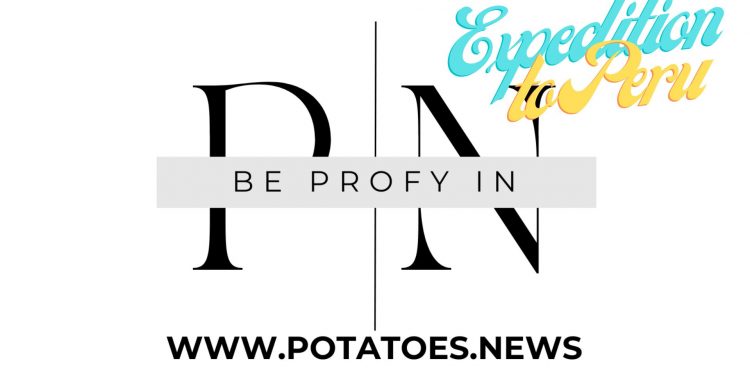In late May, the primary objective of the POTATOES NEWS expedition is to delve into the comprehensive diagnostics of phytopathogens affecting potato crops. This article outlines the key areas of focus for the expedition, including pathogen identification, diagnostic methods, reagents used, laboratory accreditation, potato certification procedures, and the study of potato varieties for industrial processing. Furthermore, we will highlight the collaboration with prominent agricultural research centers such as the International Potato Center (CIP), Instituto Nacional de Innovación Agraria (INIA), and the CGIAR consortium.
Pathogens Tested: A Comprehensive List
The diagnostic process targets a range of pathogens that affect potato crops, categorized as viruses, bacteria, fungi, and nematodes. Below are the specific pathogens tested:
Viruses:
- Potato virus Y (PVY)
- Potato leafroll virus (PLRV)
- Potato virus A (PVA)
- Potato virus X (PVX)
- Potato virus S (PVS)
Bacteria:
- Clavibacter michiganensis subsp. sepedonicus (cause of ring rot)
- Ralstonia solanacearum (cause of brown rot)
- Pectobacterium spp. (cause of soft rot)
- Dickeya spp. (cause of blackleg and soft rot)
Fungi:
- Phytophthora infestans (cause of late blight)
- Alternaria solani (cause of early blight)
- Fusarium spp. (cause of dry rot)
- Verticillium dahliae (cause of wilt)
Nematodes:
- Globodera rostochiensis (golden cyst nematode)
- Globodera pallida (pale cyst nematode)
- Meloidogyne spp. (root-knot nematodes)
- Pratylenchus spp. (lesion nematodes)
Diagnostic Methods: Cutting-Edge Techniques
A variety of methods are employed to accurately identify these pathogens:
- Visual Inspection: Initial assessment through visual symptoms on plants.
- Microscopy: Detailed examination using light or electron microscopy to identify morphological features of pathogens.
- Enzyme-Linked Immunosorbent Assay (ELISA): Used for detecting specific viral proteins.
- Polymerase Chain Reaction (PCR): Amplifies DNA sequences specific to pathogens for precise identification.
- Sequencing: Determines the exact genetic code of pathogens, providing high-resolution data.
Reagents for Diagnostics
The diagnostic reagents are sourced from leading biotechnology companies specializing in agricultural diagnostics. Key suppliers include:
- Agdia Inc. (USA)
- Bioreba AG (Switzerland)
- LOEWE Biochemica GmbH (Germany)
- DSMZ (Germany)
Laboratory Accreditation
The laboratory conducting these diagnostics is accredited to ensure high standards of quality and reliability. Accreditation is typically according to the ISO/IEC 17025 standard, which specifies requirements for the competence of testing and calibration laboratories. There are relatively few such accredited laboratories in the country, underscoring the importance of maintaining rigorous standards.
Potato Certification Scheme
The certification of potatoes follows a structured process to ensure quality and disease-free status. The key steps include:
- Field Inspection: Regular monitoring of growing crops for symptoms of diseases.
- Sampling: Collection of tuber and soil samples for laboratory testing.
- Laboratory Testing: Employing the aforementioned diagnostic methods to test for pathogens.
- Certification Issuance: Based on test results, certification is granted, ensuring the potatoes meet the required health standards.
Study of Potato Varieties for Industrial Processing
The expedition will also explore potato varieties suited for industrial processing, evaluating factors such as yield, resistance to diseases, and suitability for products like chips and fries. This involves agronomic trials and consultations with breeders and industry experts.
Collaboration with Research Centers
A crucial aspect of the expedition is the collaboration with international research organizations, which provides access to cutting-edge research and global expertise:
- International Potato Center (CIP): Focuses on research and development to improve potato varieties and sustainable production methods.
- Instituto Nacional de Innovación Agraria (INIA): National institute dedicated to agricultural innovation and research.
- CGIAR Consortium: A global partnership that unites organizations engaged in research for a food-secure future.
Through these collaborations, the expedition aims to enhance knowledge and practices in potato pathogen diagnostics, certification processes, and variety selection for industrial purposes, contributing to the overall improvement of the potato industry.







